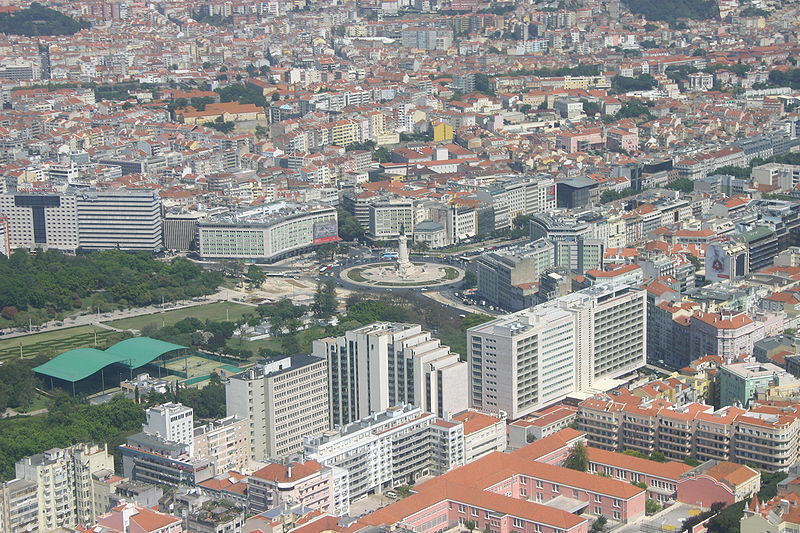

On Friday evening, as its former Managing Director languished in a New York prison on charges totally unrelated to high finance, the International Monetary Fund announced that it had approved a $36.8 billion loan for Portugal to – as Reuters put it – “help the country recover from a debilitating sovereign debt crisis”.
The flip side is that in order to qualify for this “bail out”, the Portuguese government has agreed to make “steep spending cuts, raise taxes, reform its labor and justice systems, and embark on an ambitious privatization scheme”.
No one, least of all the Portuguese people, should be taken in by this rhetoric of helping the country to recover. What the IMF has done, is intent on doing, is propping up the gargantuan Ponzi scheme known as the international banking system, because the people who run it realise that as soon as one player is permitted to default, the entire corrupt edifice will collapse around their heads like a house of cards.
The suggestion that savage cuts in the Portuguese economy, the Greek economy, the Irish economy, or any economy, benefits the people is particularly insulting when one sees the salaries top bankers are paid.
Mervyn King, Chairman of the Bank of England: $562,004
Axel Weber, Bundesbank: $432,883
Benjamin Bernanke of the Federal Reserve, a mere $191,300
and Jean-Claude Trichet, head honcho of the European Central Bank, a whopping $533,035.
When one considers too that banking is in effect no more than bookkeeping, these sinecures are lucrative indeed. But let us return to Ponzi schemes. The name is derived from the Italian-born crook Charles Ponzi who arrived in the United States in 1903. After serving time in Canada for fraud, and in the United States for smuggling illegal immigrants, he set up a complex fraud promising investors sky high returns. Although the idea was not new even then, Ponzi’s particular scheme has become the template for this type of fraud, a large number of today’s being Internet-based. Ponzi was able to offer and pay investors high returns as long as new money was coming in, but when the flood of new investors (read mugs) dried up, as eventually it always must, the fraud was exposed and came crashing down around his ears.
Although Ponzi paid for his crimes, serving hard time, this was little comfort to his victims. The victims of the current ongoing swindle have even less comfort than Ponzi’s marks, because not only is the scheme their governments have signed them up to completely legal, but they are paying for it in perpetuity. The entire world banking system is in effect one giant Ponzi scheme, as the bulk of new money – 97% is the usual estimate – is created by the banks through the mechanism of loaning money which is deposited with one bank, then finds its way to another bank and so on, each time increasing the money supply, and requiring the new money to be repaid at interest.
Although the technique is subject to all manner of obfuscation by economists and academic front men, a five year old child could do the math. Because money is created as a debt, there must always be a shortfall; someone is always “not going to get paid”.
The magnanimous offer of the IMF to help Portugal “recover from a debilitating sovereign debt crisis” is nothing more than yet another desperate attempt to prop up the Ponzi scheme that is the world banking system, quite cynically, and at the expense of the Portuguese people. The real worry of the IMF and its fellow travellers is that the entire system will go belly up. But what if it does?
When individuals and companies are unable to pay their debts, they often file for – or are forced into – bankruptcy. When a company goes bankrupt that is usually the end; its assets are sold off, and it may literally cease to exist. When individuals go bankrupt however, in Britain at least, the worst that usually happens is they feel a profound sense of shame. They are unable to obtain credit, and their assets are sold off, though by no means all of them, but once the bankrupt has been discharged, he is free to start over again. Many people can and do bounce back from bankruptcy, including Freddie Laker (founder of Skytrain); the film director and producer Francis Ford Coppola (who was bankrupted more than once); and perhaps most notably Walt Disney, who went bankrupt early on in his career.
Recently, a Christian radio station in the United States predicted the world would end May 21, 2011. Well, surprise, surprise, May 21 has come, and the end of the world hasn’t. Portugal has been bankrupt twice in its history, in 1892 and 1902, and the world didn’t end then either, but it doesn’t need to declare bankruptcy, simply default on its loans, and take the consequences, which will be far less unpleasant than slashing public services.
If Portugal or any other country were indeed to default, the defaultee could hardly be sold off piecemeal or at all. In the short term, it would probably find it difficult to obtain credit in the international market, but there are ways around this, including resorting to barter. It might also argue that it has no obligation to (re)pay money that was created ex nihilo, and that as debt is piled up on debt, and interest on interest, the current adminstration, which dates only from 2005, cannot and should not be held liable for the debts of the previous one.
If the banks succeed in bailing themselves out yet again – this time on the pretext of bailing out Portugal – the Ponzi scheme can’t go on indefinitely, and some would argue that the sooner it collapses, the better.
[The above first published May 21, 2011.]
Return To Site Index